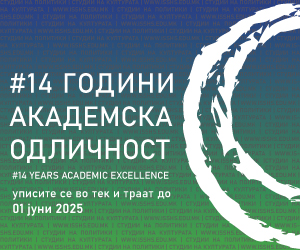“There will be elections on December 11, and the fact that some political parties have still not started preparing for a political campaign, just means that they will lose at the elections”, says Member of European Parliament Ivo Vajgl, as a response to the indications of CIVIL – Center for Freedom that in a discussion with representatives of the political parties in Macedonia, a conclusion can be made that VMRO-DPMNE has not started its pre-election activities in its local party headquarters. As Vajgl announced, he also received the same information during his last visit in Skopje.


Members of European Parliament Richard Howitt and Eduard Kukan, who held a meeting in the European Parliament with representatives of the civil society sector in Macedonia, among which was a representative of CIVIL, also share the viewpoint that the elections scheduled for December 11th will not be postponed. According to them, if a certain party decides not to activate itself during the pre-election period, it is their right, and that this will in no way affect the date scheduled for elections. “The lack of activities before elections is also an activity”, said Kukan.
“Still, all political parties have to be aware that it is not enough to just ensure conditions for fair and democratic elections, but that it is especially important to accept the results of the elections and not dispute them”, says Vajgl.
In regards to CIVIL’s question on how the decision not to extend the mandate of the Special Prosecutor’s Office would reflect on the rule of law, MEP responded that this is an internal decision of the state, and that they cannot influence this matter. Though, they do agree that conditions should be enabled for the SPO to complete its work within its given mandate.
“Not extending the SPO’s mandate, will affect the start of new investigations, but the investigations that are already in progress will continue”, stressed Howitt, according to whom, in spite of all the criticism by some of the MPs, the SPO has showed that it is a transparent institution that is non-selective and non-partisan in its investigations.
“I have already recommended some of the politicians in Macedonia to find good lawyers”, says Vajgl, who once again unconditionally supported the SPO.
The MEPs ended the meeting optimistically, in that the situation in Macedonia will finally improve after the elections on December 11, and that the political crisis in which we have been living in the past two year will not be repeated.
“The Przino Agreement has to continue with its implementation, and all other agreements that will be made in the future will be a continuation of the principles determined with this Agreement, in which the biggest parties in Macedonia participated”, is Kukan’s position, with whom Vajgl and Howitt agree.
The meeting with the MEPs that was held on October 11 in the European Parliament in Brussels, is part of the project “Civil Society for European Integration”, which is implemented by the Center for Intercultural Dialogue from Kumanovo.
Маrija Tegovska




